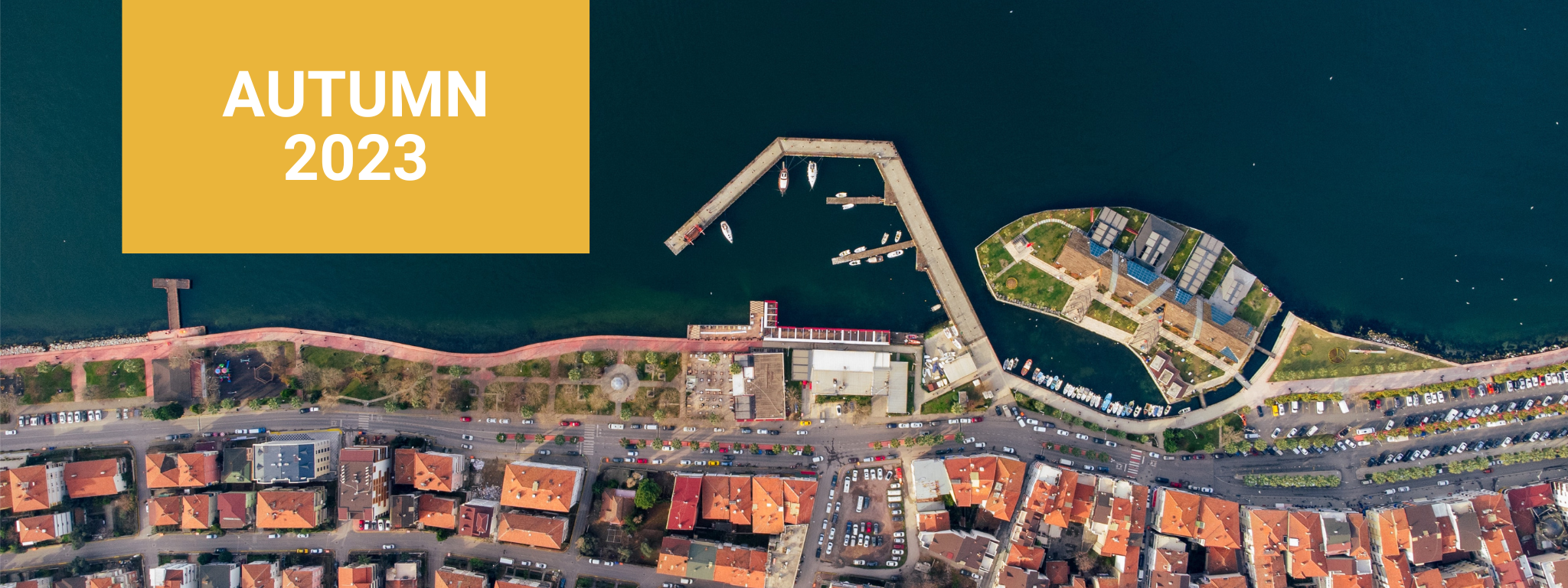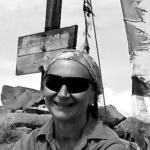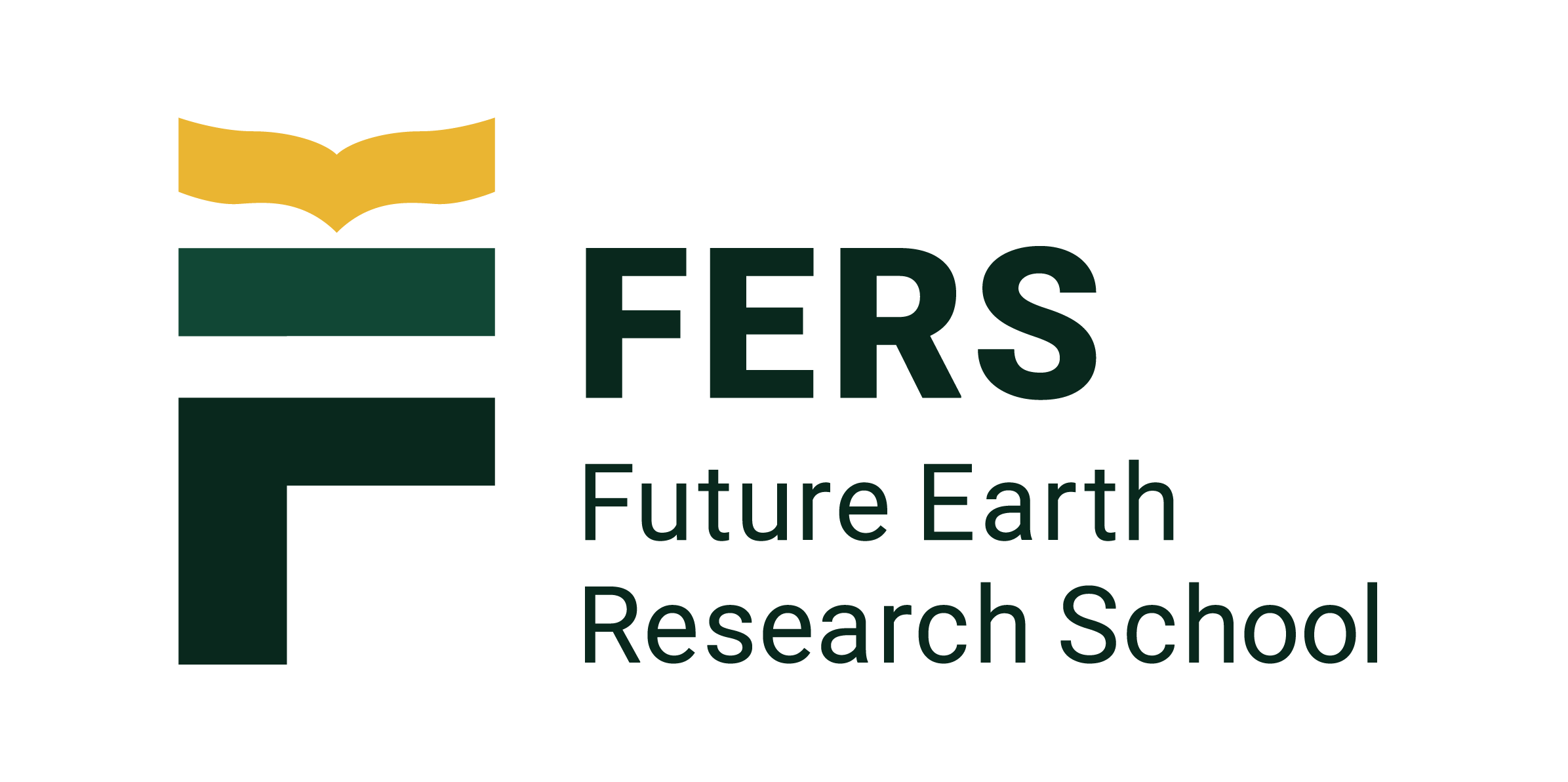
Sea Level Rise and Coastal Adaptation
Sea level rise is one of the most pressing challenges posed by climate change, with significant implications for coastal communities around the world. This comprehensive course on “Sea Level Rise and Coastal Adaptation” provides a deep understanding of the causes and impacts of rising sea levels, delving into the consequences on coastal regions including intensification of extreme events, increased coastal erosion, inundation of low-lying areas and heightened vulnerability to storm surges.
Participants will also learn about existing or planned adaptation strategies through case studies from various geographical locations, showcasing the complexity of their implementation, the disproportionate impacts on marginalized communities, and the importance of inclusive decision-making processes.
Bertinoro (FC)
Location
9-20 October 2023
Dates
88
Training hours
20
Number of participants
€ 400,00
Registration Fee
Application
Deadline: 31 July 2023
Sea level rise is one of the most pressing challenges posed by climate change, with significant implications for coastal communities worldwide. This comprehensive course on “Sea Level Rise and Coastal Adaptation” provides a deep understanding of the causes and impacts of rising sea levels, delving into the consequences on coastal regions including intensification of extreme events, increased coastal erosion, inundation of low-lying areas and heightened vulnerability to storm surges.
Participants will also learn about existing or planned adaptation strategies through case studies from various geographical locations, showcasing the complexity of their implementation, the disproportionate impacts on marginalized communities, and the importance of inclusive decision-making processes.
Throughout the course, participants will engage in group discussions, case studies, and hands-on activities to deepen their understanding of the science of sea level and its implications for coastal adaptation. Research questions that could be raised include:
- What primary scientific factors contribute to regional variations in sea level rise?
- What are the emerging areas of research and scientific advancements in studying sea level rise and its impacts?
- How can we improve the accuracy and precision of sea level measurements and projections?
- What are the feedback loops and interactions between sea level rise and other climate phenomena, such as storms and coastal erosion?
- How does sea level rise impact coastal communities’ socioeconomic systems and vulnerable populations?
- How can scientific knowledge inform decision-making processes and policies related to coastal adaptation?
These research questions are examples that can be further refined or expanded based on the specific interests and goals of the course participants.
The course will have a duration of two weeks and will be structured as follows:
Week 1: Understanding Sea Level Rise
- The science behind sea level changes
- Sea level measurement techniques
- Sea level modelling
- Factors influencing sea level variability
- Climate change and sea level rise
Week 2: Impacts and Adaptation
- Coastal processes affected by sea level rise
- Analysis of case studies showcasing the environmental, economic, and social impacts of sea level rise on coastal regions
- Overview of different adaptation strategies and approaches to addressing sea level rise impacts
- Integrating Science into Coastal Adaptation
By the end of the course, participants will have a comprehensive understanding of the science, measurement and modelling techniques, impacts and adaptive measures related to sea level rise. They will be able to access and interpret existing relevant data sources and visualization tools and will be well-equipped to contribute to the development of sustainable and resilient coastal communities based on existing and ongoing initiatives, leveraging their knowledge to tackle the complex challenges posed by rising sea levels.

Begoña Pérez Gómez – Director of the Course
Begoña Pérez Gómez is a physical oceanographer with a Ph.D. in Marine Science and Technology from the University of Cantabria in Spain. She is currently Head of the Harbour Oceanography Department at Ports of Spain, where she manages the sea level monitoring and forecasting system and participates in designing the climate change adaptation strategy for the Spanish ports. Her main skills and interests are related to sea level processes at different time scales and their impacts, operational oceanography, and the design and implementation of early warning systems, with a focus on coastal sea level hazards.

Ivan Federico
Ivan Federico is a Scientist in Ocean Modelling and is responsible for the Advanced Modelling research unit of the Ocean Predictions and Applications (OPA) Division at CMCC Foundation. He holds a Ph.D. in Hydraulics Engineering for the Environment and Territory in 2011, focused on Computational Fluid Dynamics, contributing to developing a fully meshless Lagrangian particle model. Since 2012, he has been employed at CMCC, where he has led the development and implementation of very high-resolution hydrodynamic and wave models in operational forecasting mode, from large-scale to shelf-coastal, riverine and urban ocean. His current research focuses on coastal oceanography processes, seamless approaches between scales, unstructured-grid models, and storm surge forecasting.

Javier López Lara
Javier López Lara is a Full Professor at the University of Cantabria (UC) and Head of the Climate Risks, Adaptation and Resilience Group of IHCantabria. Javier is a civil engineer and holds a PhD from UC. He was a postdoctoral researcher at Cornell University (USA) and then a Ramón y Cajal researcher at UC. He has developed his research in wave hydrodynamics, also specialising in surf zone hydrodynamics and wave-structure interactions, wave interaction with coastal ecosystems, using both experimental and numerical methods. In recent years, he has extended his research to the characterisation of climate risks, focusing on infrastructures. He has been awarded the Modesto Vigueras Prize (2004) and the Paepe-Willems International Research Prize (PIANC, 2005). He has published 78 SCI research papers and has supervised 17 doctoral theses.

Gianandrea Mannarini
Gianandrea Mannarini is a senior scientist at CMCC, holding a Ph.D. in Physics from the Humboldt-University of Berlin in Germany and an M.Sc. in Physics from the University of Pisa, Italy. His work primarily revolves around applications, services, and the generation of actionable insights using ocean forecasting models and climate data. One of his key research areas is ship weather routing, where he spearheads the development of the open-source VISIR model. Additionally, he has recently delved into the examination of coastline changes stemming from sea level rise. In this role, he led a specialized study in support of the Lecce urban master plan.

Simona Masina
Simona Masina is a physical oceanographer with a Ph.D. from Princeton University, Director of the Ocean Modelling and Data Assimilation Division of the Euro-Mediterranean Centre on Climate Change Foundation (CMCC) – Italy. Her scientific interests focus on understanding the ocean’s role in the global climate system and the ability to predict the state of the ocean and its variability at different spatial and temporal scales. She has more than 20 years of experience in ocean modelling and has been involved in national and international projects with both scientific and coordinating responsibilities. She has to her credit more than 100 publications in international refereed journals. Her experience includes teaching activities at the graduate level at the Ca’Foscari University of Venice and at the University of Bologna. She is a member of the Italian Oceanographic Commission (Italian IOC-UNESCO) and of the Scientific Board of Mercator Ocean International.

Sara Morucci
Sara Morucci is a Physicist with Ph.D. in Non-Linear Dynamics and Complex Systems. She has been a Researcher at ISPRA since 2001 and is currently in the National Centre for Environmental Characterization, Coastal Protection and Maritime Climatology, Operational Oceanography. She has major experience in physical hydrodynamical modelling, predictive uncertainty processors and operational forecasting of sea level especially in the Venice lagoon. She is involved in statistical analysis of meteo-marine observed and modelling data, development and analysis of CC meteo-marine physical indicators (sea level, storm surges, extreme waves and tsunami).

Nadia Pinardi
Nadia Pinardi holds a Ph.D. in Applied Physics from Harvard University and is a Full Professor of Oceanography at the University of Bologna. Her main achievement is designing and practically implementing ocean forecasting systems for the world’s open ocean and coastal areas. She is a member of the European Academy of Sciences. From 2012 to 2019 she was Co-President of the Joint Committee for Oceanography and Marine Meteorology (JCOMM) of UNESCO-IOC and WMO, and since 2019 she has been elected Vice-President of the Commission on Observation, Infrastructure and Information Systems (Infrastructure Commission) of WMO. She is Chair of the UN Decade for Ocean Science Programme “CoastPredict” and Director of the UN Decade Collaborative Centre for Coastal Resilience, hosted by the University of Bologna.

Johannes Pein
Johannes Pein has a background in environmental and marine environmental sciences. He holds a Ph.D. in Marine Environmental Sciences from the University of Oldenburg where he received his specialisation in numerical modelling of the coastal ocean. Since 2016, Johannes has worked as a scientist at the Institute of Coastal Systems, Analysis and Modelling, Hereon Research Center, Geesthacht, Germany. Johannes specialises in coastal and estuarine modelling and is involved in numerous national and international projects addressing coastal climate change and human intervention. His work particularly focuses on coupled modelling hydrodynamics, biogeochemistry and sediment dynamics.

Claudia Romagnoli
Claudia Romagnoli is an Associate Professor of Stratigraphic Geology and Sedimentology at the University of Bologna, Department of Biological Sciences, Geology and Environment (BiGeA). Her research interests include marine and coastal geology; seafloor and habitat mapping, including geohazard-related features; late Quaternary and recent sea-level fluctuations; coastal monitoring techniques; coastal erosion; and protection, mitigation and adaptation strategies to counter the effects of climate change. She is author/co-author of about 110 publications (80 in indexed journals, 30 as book chapters) and over 100 contributions to congresses.

Agustín Sánchez-Arcilla
Agustín Sánchez-Arcilla, Ph.D. in Civil Engineering, is a full professor at the Department of Civil and Environmental Engineering (DECA) of the Polytechnic University of Catalonia. He has been the director of the Laboratory of Marine Engineering (LIM/UPC) since 1990, where he developed his research in the field of marine engineering (coastal and port engineering). He was one of the promoters of creating the International Centre for Coastal Resources Research (CIIRC), of which he is currently Vice-President. He has published more than 20 books and more than 150 research papers in national and international journals, has been guest or associate editor of several prestigious journals, has supervised 28 Ph.D. theses and has participated in more than 35 European research projects.

Francesco Trotta
Francesco Trotta is a scientist at the Ocean Predictions and Applications (OPA) division at CMCC Foundation since 2022. His research is mainly focused on high-resolution relocatable oceanographic modelling and understanding submesoscale processes (1-10km) in the ocean. He received his PhD in Astronomy in 2012 at the University of Florence. From 2012 to 2022, he researched ocean modelling at the University of Bologna, developing the innovative Relocatable Ocean Modeling platform SURF. Since 2023, he has been a Black Sea-PHY NRT Copernicus Marine Service development team member. He has been a lecturer in several training courses concerning numerical modelling of the oceans.

Giorgia Verri
Giorgia has been a researcher at the CMCC Foundation since 2012 and has vast expertise in the meteorological modelling systems for wind energy forecasting. She has a Master of Science degree in Physics from the University of Salento, a Level II Master in Energy Efficiency and Renewable Energies from La Sapienza University of Rome, and a Ph.D. in Environmental Sciences from the University of Bologna. Giorgia has developed an Estuarine Box Model to accurately represent the net river release into mesoscale ocean models and estimate salt wedge intrusion. She is currently exploring the numerical and physical capabilities of the finite-element model based on SHYFEM code. She is also an ECOPs member of the United Nations Program CoastPredict.

Vittoria Mencarini
Vittoria is an architect with a post-graduate Master of Landscape Architecture and a Ph.D. in Landscape Architecture. Her professional practice and research activities revolve around the relationship between landscape design and land transformation at different scales of intervention. She has supported the Municipality of Ravenna in designing climate change adaptation plans, landscape projects to conserve protected areas, and design practices focused on improving soil health. Since July 2021 she has worked at the Municipality of Ravenna in the Naturalistic Area Office. She is also responsible for disseminating and implementing the SECAP (Sustainable Energy and Climate Action Plan).
Location
The course will be held at the University Residential Center of Bertinoro (Ce.U.B.).
Bertinoro is halfway between the cities of Forlì and Cesena, 6 km from SS9 (Via Emilia). Forlì is the town of reference for transport by train and bus to and from Bertinoro.
Accommodation
The accommodation will be at the University Residential Center of Bertinoro (Ce.U.B.). Please remember that participation in presence is mandatory.
The school is offering limited financial assistance to cover the accommodation costs at the Center of Bertinoro over the entirety of the two-week stay. If you are interested, please check the section below.
For those who won’t get the financial assistance, all the costs will be communicated during the selection process.
The school will provide and offer lunches and dinners for all the participants. Participants are free to organize themselves at their own expense upon notice. The school will not cover any extra costs.
Transport
Nearest airport: Bologna’s airport “Guglielmo Marconi”
Nearest train station: Forlì Station (20 min. far from Bertinoro by car)
On how to reach the Centre, please consult this link.
Most of the participants will arrive in Bologna, so the school will organize a shuttle to bring participants from Bologna to Bertinoro. More details will be given to the selected candidate.
The school offer limited financial assistance based on the applicant’s needs. It will cover accommodation expenses in Bertinoro. If interested, please specify it in the application form in the dedicated section. You can also leave a statement (max 200 words) explaining why you should benefit from this assistance.
The assistance WILL NOT cover travel costs.
Since there is a limited number of places, you are encouraged to apply early to avoid disappointment.
If accepted, you will receive an email confirming your financial assistance by secretariat@fersschool.it
The maximum age at the time of application is 35 years old.

